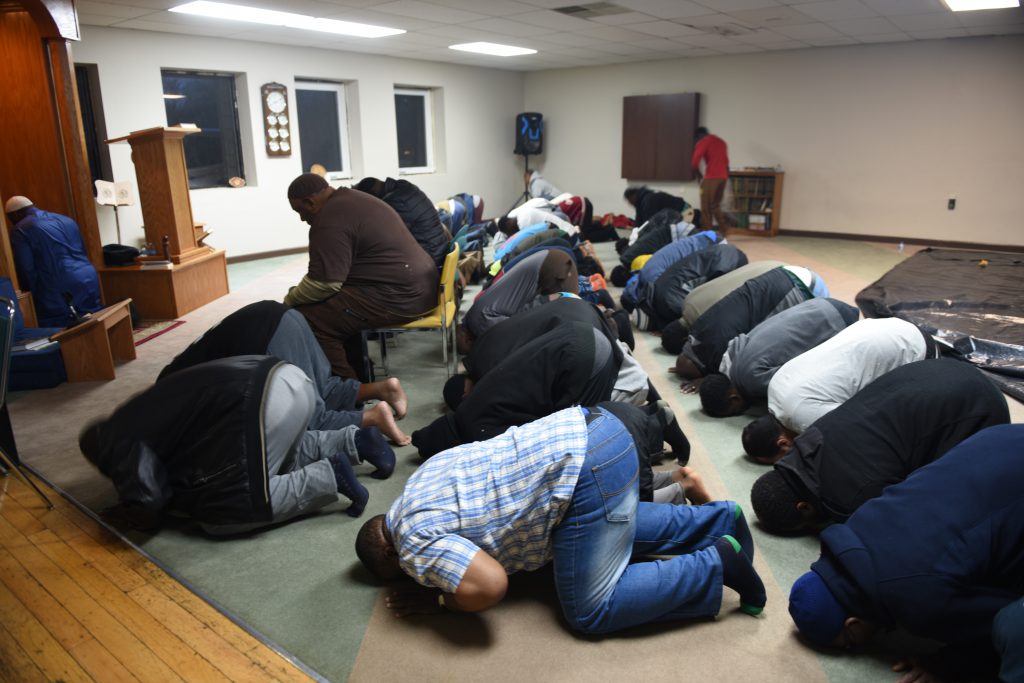Local Faith Communities Adapt to Epidemic
Online prayers, services via Facebook Live, posting sermons on YouTube.

With Ramadan coming next month, there is concern that mosques will be closed during the time when they are most heavily used, says Ahmed Quereshi, president of the Islamic Society of Milwaukee. File photo by Sue Vliet/NNS.
First, they were told to stay home if they weren’t feeling well.
Then they were told to come to service but be mindful of social distancing.
And, finally, they were told to just stay at home.
The COVID-19 pandemic has sent members of faith communities in Milwaukee and perhaps the world scrambling to adapt to fast-moving changes.
“Fear has gripped people more than faith,” said Bishop Troy Hughes, senior pastor at Deliverance Temple Ministry, 7984 W. Appleton Ave., which is now airing its Sunday service on Facebook Live.
“They hate not being able to come to church because it is so important to people.”
Ahmed Quereshi, president of the Islamic Society of Milwaukee, said the three largest mosques in Milwaukee have canceled in-person services indefinitely and have moved prayer online.
With Ramadan, a Muslim holiday, coming next month, there is concern that mosques will be closed during the time when they are most heavily used, he said.
Ken Elbert, president, Milwaukee North Stake of the Church of Jesus Christ of Latter-day Saints, said the church has moved online.
Although visual conferencing has helped keep members connected, it’s “not quite the same,” Elbert said.
Quereshi said his members are disappointed but understand they can’t meet in person.
Many mosques have reach out to members via email and have provided the phone numbers of local imams.
Members are still supporting their communities with resources such as weekly food pantries.
Although most institutions have moved online and are readily accessible to most of their members, the needs of older members and those without internet access remain a concern.
“Before the safer at home order, some of the ministers would go see about those that didn’t have access,” Elbert said. “But now there is concern for them – especially the ones that live alone – and we are conscious of them.”
This story was originally published by Milwaukee Neighborhood News Service, where you can find other stories reporting on fifteen city neighborhoods in Milwaukee.
More about the Coronavirus Pandemic
- Governors Tony Evers, JB Pritzker, Tim Walz, and Gretchen Whitmer Issue a Joint Statement Concerning Reports that Donald Trump Gave Russian Dictator Putin American COVID-19 Supplies - Gov. Tony Evers - Oct 11th, 2024
- MHD Release: Milwaukee Health Department Launches COVID-19 Wastewater Testing Dashboard - City of Milwaukee Health Department - Jan 23rd, 2024
- Milwaukee County Announces New Policies Related to COVID-19 Pandemic - County Executive David Crowley - May 9th, 2023
- DHS Details End of Emergency COVID-19 Response - Wisconsin Department of Health Services - Apr 26th, 2023
- Milwaukee Health Department Announces Upcoming Changes to COVID-19 Services - City of Milwaukee Health Department - Mar 17th, 2023
- Fitzgerald Applauds Passage of COVID-19 Origin Act - U.S. Rep. Scott Fitzgerald - Mar 10th, 2023
- DHS Expands Free COVID-19 Testing Program - Wisconsin Department of Health Services - Feb 10th, 2023
- MKE County: COVID-19 Hospitalizations Rising - Graham Kilmer - Jan 16th, 2023
- Not Enough Getting Bivalent Booster Shots, State Health Officials Warn - Gaby Vinick - Dec 26th, 2022
- Nearly All Wisconsinites Age 6 Months and Older Now Eligible for Updated COVID-19 Vaccine - Wisconsin Department of Health Services - Dec 15th, 2022
Read more about Coronavirus Pandemic here





















